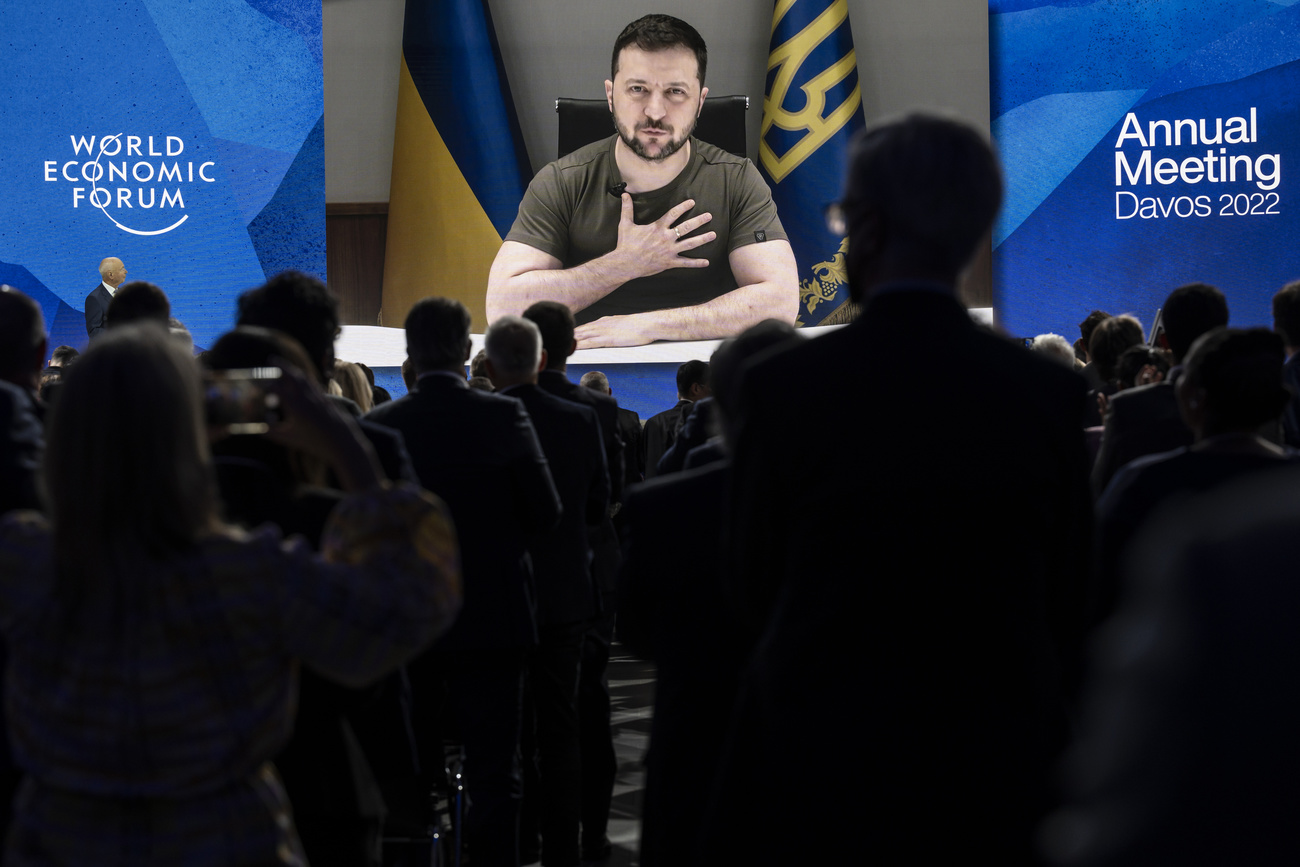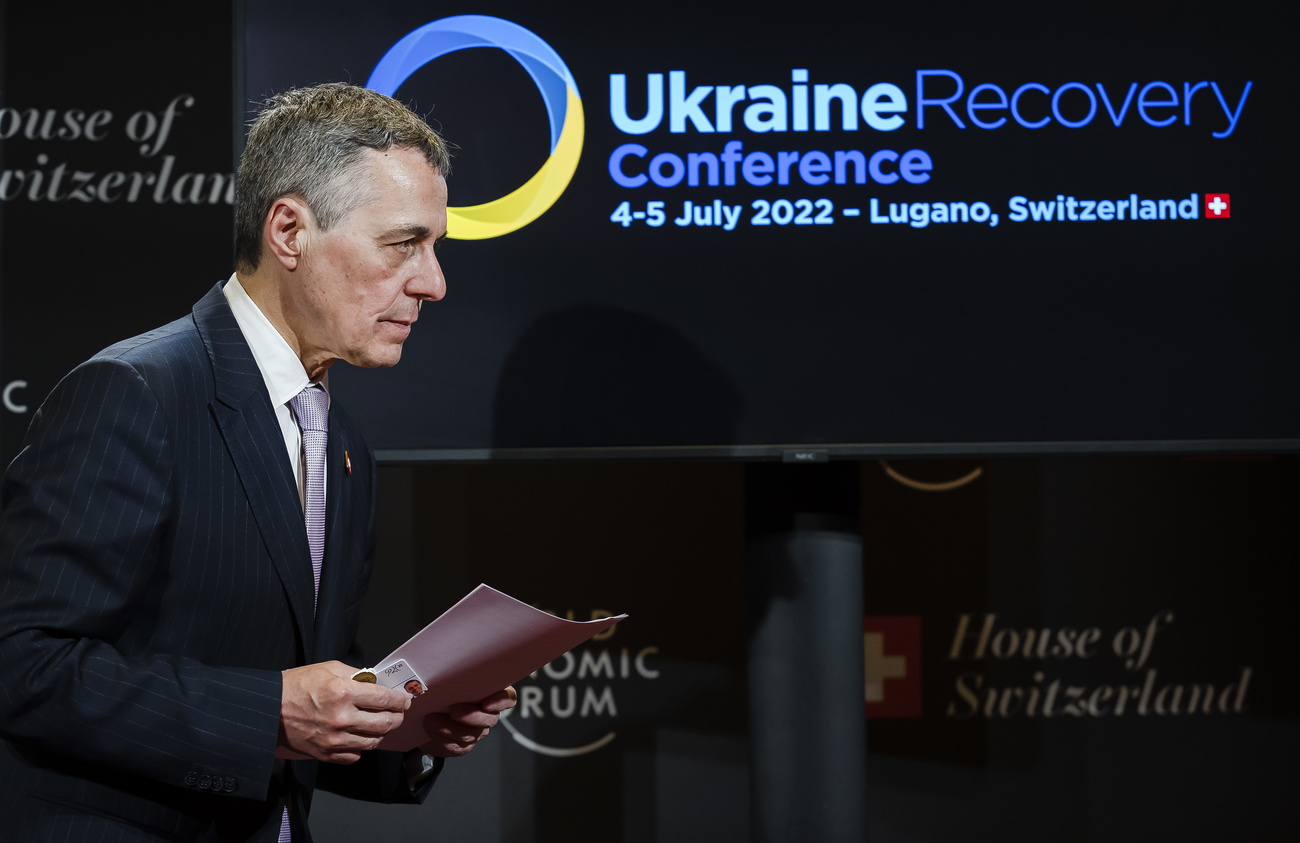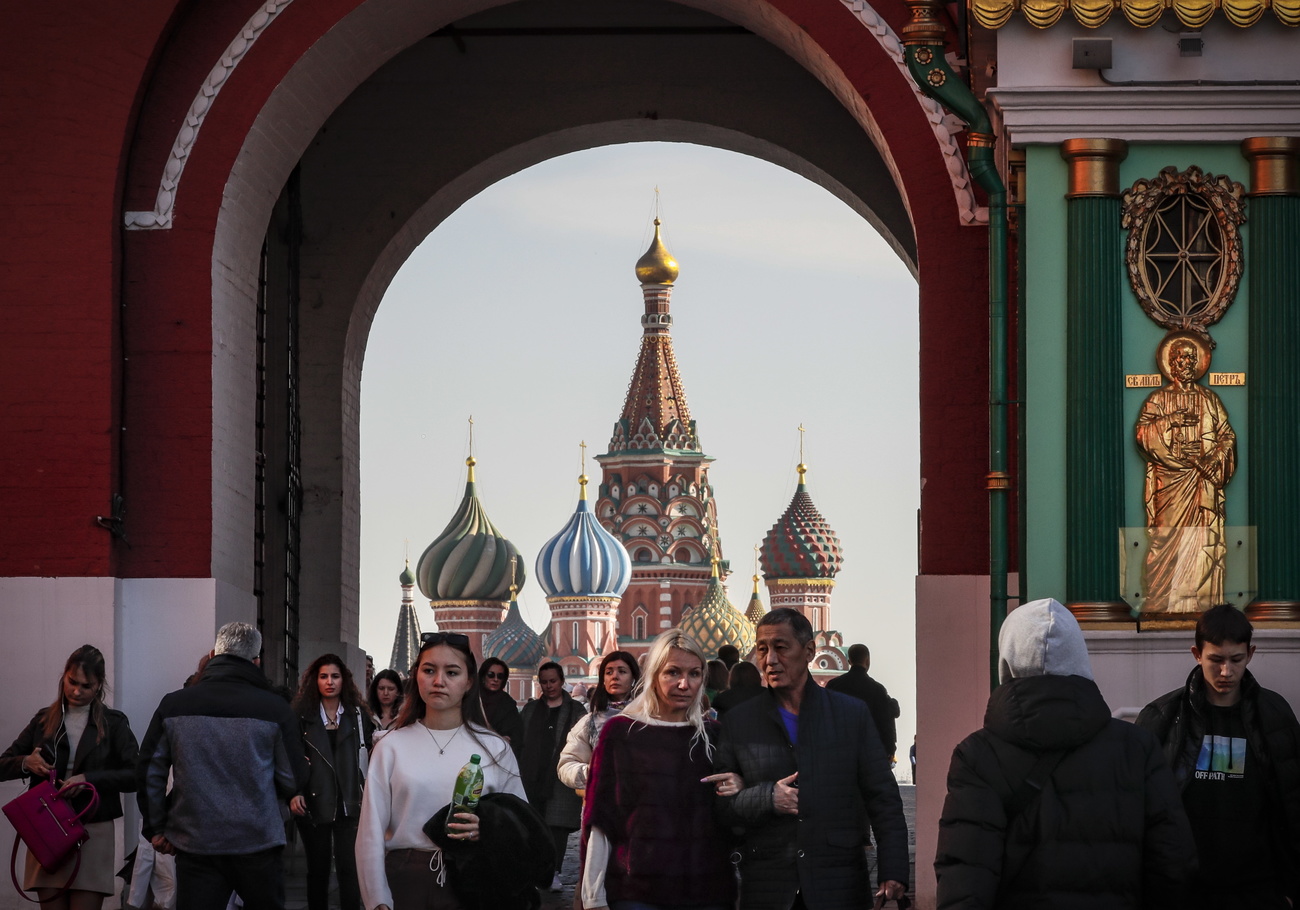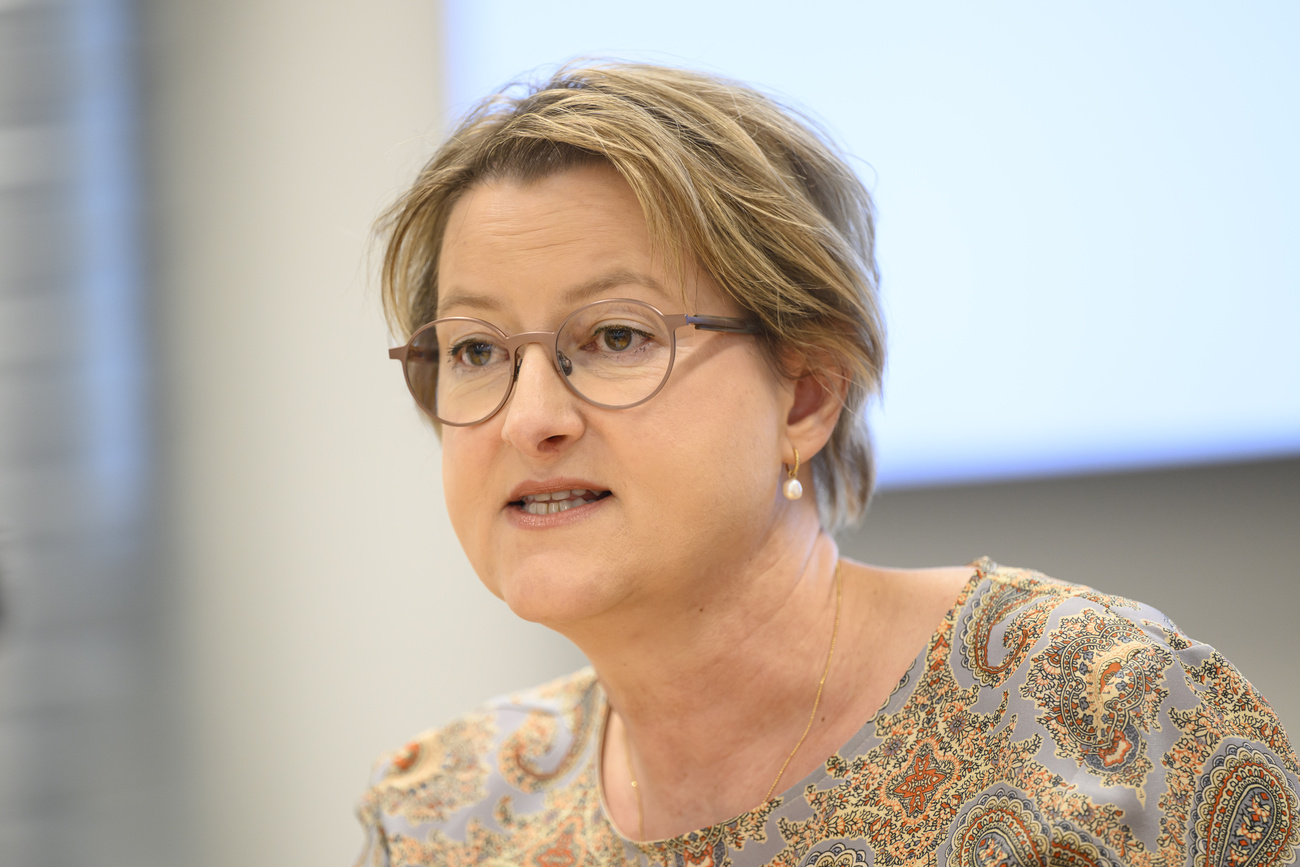
Could Switzerland seize Russian assets to rebuild Ukraine?

Many Western countries have agreed to freeze Russian oligarchs’ assets. Some now want to go further and seize some of these assets to help rebuild Ukraine. Will Switzerland join them?
“Russian assets must be found and confiscated or frozen,” Ukrainian President Volodymyr Zelensky said when he addressed the World Economic Forum (WEF) in Davos via video link in May.
“Of course, this isn’t easy. But if we do that, the idea of copying Russia will lose its appeal for other aggressors,” he said.
Zelensky’s words have fallen on open ears. In April the United States House of Representatives passed a bill urging President Joe Biden to sell the frozen luxury assets of Russian oligarchs and use the funds to provide military and humanitarian aid to Ukraine. The legislation is non-binding, but the fact that it passed reflects a bipartisan desire for the president to take a more aggressive stance against Russia.
Within the European Union the European Commission has proposed stronger rules on asset recovery and confiscation. The commission deems it a crime to hide assets and supports the confiscation and sale of them. According to Swiss newspaper Neue Zürcher Zeitung, the EU justice commissioner Didier Reynders expects Switzerland to follow suit.
A first step
Switzerland has yet to announce its official position on the matter. During the WEF in May, President Ignazio Cassis said: “This is a global question, and Switzerland will announce its position at the appropriate time.”

More
Switzerland wants to play key role in rebuilding Ukraine
The left-wing Social Democratic Party has taken the first step and submitted an initiative that calls on the government to introduce legislation that spells out how to confiscate the assets of sanctioned individuals.
However, the House of Representatives is unlikely to discuss this initiative before the autumn session. What’s more, even if it is ratified, it will probably take several years before it becomes law.
“Such legislation would be possible under certain conditions,” says Fabian Teichmann, who specialises in international law. He explains that individual property rights are enshrined in Article 26 of the Swiss Constitution, and “any limitation of fundamental rights must be justified by public interest”. The ramifications of seizing assets could be huge, which calls into question how the law would be written.
The Federal Act on the Implementation of International Sanctions (Embargo Act, EmbA)External link, which forms the legal base for sanctions against Russia, does not provide for the confiscation of assets. When assets are frozen, property rights remain with the owner, but transactions are temporarily prohibited. This means that real estate can neither be rented out nor sold, but owners are allowed to keep their properties. Once the sanctions are lifted or the assets in question have been removed from the sanctions list, the owners are free to access their assets again.
The Federal Act on the Freezing and the Restitution of Illicit Assets held by Foreign Politically Exposed Persons (Foreign Illicit Assets Act, FIAA)External link which took effect in 2016 governs the confiscation of assets held by dictators. The act includes a clause whereby the confiscated assets can be released back into the hands of the citizens of the country.
Based on this act, the government has launched administrative proceedings to allow the confiscation of assets from associates of former Ukrainian President Viktor Yanukovych, which were frozen in Switzerland after Ukraine’s 2014 revolution. However, under the current law the assets cannot be seized and transferred to Ukraine.
(Source: State Secretariat for Economic Affairs, SECO)
Another option would be for the international community to agree on an international treaty which Switzerland would ratify. According to Teichmann, such a move would “not fundamentally” violate Swiss neutrality.
‘Banana republic’
Significant amounts of the Russian oligarchs’ assets are frozen in Swiss bank accounts, and seizing them would seriously affect the country’s financial industry.
Nevertheless, Switzerland’s financial sector has been rather reserved and has not issued a clear statement on the subject. The Swiss Bankers Association simply acknowledged the initiative and said it would abide by all applicable laws and measures.
The Association of Swiss Private Banks said it would be “surprising if property and procedural rights were no longer respected in Switzerland”. If parliament passed a bill in favour of confiscating assets, it would “undoubtedly have a long-lasting impact on investors’ confidence in Switzerland’s financial sector and its credibility”, it said.
The managing director of the Institute for Economic Law at the University of Bern, Peter V. Kunz, also warns that confiscating assets would not only harm the financial sector but Switzerland’s image as a whole. “Rule of law makes Switzerland attractive to investors, and the Social Democrats’ proposal would turn our country into a banana republic,” he said.
Law-based states require just compensation for confiscated assets, he explained. “But that’s precisely what should not happen in the case of Russia.” According to Kunz, it could take years to find evidence that an oligarch pursued illegal activities, which would make it difficult to use the confiscated funds for Ukraine’s recovery.
Kunz is convinced that the situation would be particularly tricky if Switzerland acted on its own without consulting the international community. He recalls the 2013 tax row between Switzerland and the US, when Swiss banks handed over clients’ data to the US. This was a huge blow to the reputation of the country’s financial industry and led to a loss of trust in the rule of law. “That mustn’t be repeated,” he said.
For Nora Meier, managing director of the Swiss School of Public Governance at the federal technology institute ETH Zurich, this is an international question. “It depends on what the rest of the world is doing, especially the US, the EU and the UK,” she said. “If other countries, in particular the big financial centres, were to introduce such legislation based on their national laws, it would be difficult not to go along with it.”
Meier pointed out that if seizing sanctioned Russian oligarchs’ money were considered an isolated case, it could influence Switzerland’s decision, as it would cushion the negative impact on the financial sector.
Translated from German by Billi Bierling. Edited by Reto Gysi von Wartburg

More
Long shadow of Russian money raises tricky questions for Swiss bankers

In compliance with the JTI standards
More: SWI swissinfo.ch certified by the Journalism Trust Initiative































You can find an overview of ongoing debates with our journalists here . Please join us!
If you want to start a conversation about a topic raised in this article or want to report factual errors, email us at english@swissinfo.ch.